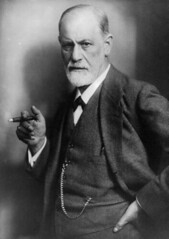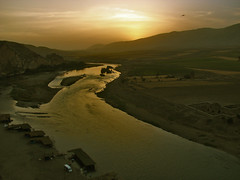| 4767822774 | Civilization | An ambiguous term of ten used to denote more complex societies but sometimes used by anthropologists to describe any group of people sharing a set of cultural traits. | | 0 |
| 4767822775 | Foragers | People who support themselves by hunting wild animals and gathering wild edible plants and insects. | | 1 |
| 4767822776 | Artifact | an object made by a human being, typically an item of cultural or historical interest. | | 2 |
| 4767822777 | Culture | Socially transmitted pat terns of action and expression. Material culture refers to physical objects, such as dwellings, clothing, tools, and crafts. Culture also includes arts, beliefs, knowledge, and technology. | | 3 |
| 4767822778 | Hominid | a primate of a family ( Hominidae ) that includes humans and their fossil ancestors. | | 4 |
| 4767822779 | Paleolithic Age | The period of the Stone Age associated with the evolution of humans. It predates the Neolithic period. | | 5 |
| 4767822780 | Neolithic Age | The period of the Stone Age associated with the ancient Agricultural Revolution(s). It follows the Paleolithic period. | | 6 |
| 4767822781 | Technology | the application of scientific knowledge for practical purposes, especially in industry. | | 7 |
| 4767822782 | Homo sapiens | The species of human beings that exist today. | | 8 |
| 4767822783 | Nomad | a member of a people having no permanent abode, and who travel from place to place to find fresh pasture for their livestock. | | 9 |
| 4767822784 | Hunter-Gatherer | A member of a people subsisting in the wild on food obtained by hunting and foraging. | | 10 |
| 4767822785 | Neolithic Revolution/Agricultural Revolution | The Neolithic Revolution or Neolithic Demographic Transition, sometimes called the Agricultural Revolution, was the wide-scale transition of many human cultures from a lifestyle of hunting and gathering to one of agriculture and settlement, allowing the ability to handle an increasingly larger population. | | 11 |
| 4767822786 | Slash-and-Burn Farming | a widely used method of growing food in which wild or forested land is clear cut and any remaining vegetation burned. The resulting layer of ash provides the newly-cleared land with a nutrient-rich layer to help fertilize crops. | | 12 |
| 4767822787 | Domestication | To convert(animal, plants, etc.) to domestic uses;tame | | 13 |
| 4767822788 | Megaliths | Structures and complexes of ver y large stones constructed for ceremonial and religious purposes in Neolithic times. | | 14 |
| 4767822789 | Sumerians | The people who dominated southern Mesopotamia through the end of the third millennium B.C.E. They were responsible for the creation of many fundamental elements of Mesopotamian culture, such as irrigation technology, cuneiform, and religious conceptions, taken over by their Semitic successors. | | 15 |
| 4767822790 | Semitic(Language) | Family of related languages long spoken across parts of western Asia and northern Africa. In antiquity these languages included Hebrew, Aramaic, and Phoenician. The most widespread modern member of the Semitic family is Arabic. | | 16 |
| 4767822791 | City State | A small independent state consisting of an urban center and the surrounding agricultural territory. A characteristic political form in early Mesopotamia, Archaic and Claszsical Greece, Phoenicia, and early Italy. | | 17 |
| 4767822792 | Babylon | The largest and most important city in Mesopotamia. It achieved particular eminence as the capital of the Amorite king Hammurabi in the eighteenth century B.C.E. and the Neo-Babylonian king Nebuchadnezzar in the sixth century!B.C.E. | | 18 |
| 4767822793 | Hammurabi | Amorite ruler of Babylon. He conquered many city- states in southern and northern Mesopotamia and is best known for a code of laws, inscribed on a black stone pillar, illustrating the principles to be used in legal cases. | | 19 |
| 4767822794 | Scribe | In the governments of many ancient society's, a professional position reserved for men who had undergone the lengthy training required to be able to read and write using cuneiforms, hieroglyphics, or other early, cumbersome writing systems. | | 20 |
| 4767822795 | Ziggurat | A massive pyramidal stepped tower made of mud bricks. It is associated with religious complexes in ancient Mesopotamian cities, but its function is unknown. | | 21 |
| 4767822796 | Amulet | Small charm meant to protect the bearer from evil. Found frequently in archaeological excavations in Mesopotamia and Egypt, amulets reflect the religious practices of the common people. | | 22 |
| 4767822797 | Cuneiform | A system of writing in which wedge-shaped symbols represented words or syllables. It originated in Mesopotamia and was used initially for Sumerian and Akkadian but later was adapted to represent other languages of western Asia. Because so many symbols had to be learned, literacy was confined to a relatively small group of administrators and scribes. | | 23 |
| 4767822798 | Pharaoh | The central figure in the ancient Egyptian state. Believed to be an earthly manifestation of the gods, he used his absolute power to maintain the safety and prosperity of Egypt. | | 24 |
| 4767822799 | Ma'at | Egyptian term for the concept of divinely created and maintained order in the universe. Reflecting the ancient Egyptians' belief in an essentially beneficent world, the divine ruler was the earthly guarantor of this order. | | 25 |
| 4767822800 | Memphis | The capital of Old Kingdom Egypt, near the head of the Nile Delta. Early rulers were interred in the nearby pyramids. | | 26 |
| 4767822801 | Thebes | Capital city of Egypt and home of the ruling dynasties during the Middle and New Kingdoms. Amon, patron deity of Thebes, became one of the chief gods of Egypt. Monarchs were buried across the river in the Valley of the Kings. | | 27 |
| 4767822802 | Hieroglyphics | A system of writing in which pictorial symbols represented sounds, syllables, or concepts. It was used for official and monumental inscriptions in ancient Egypt. Because of the long period of study required to master this system, literacy in hieroglyphics was confined to a relatively small group of scribes and administrators. Cursive symbol-forms were developed for rapid composition on other media, such as papyrus. | | 28 |
| 4767822803 | Papyrus | A reed that grows along the banks of the Nile River in Egypt. From it was produced a coarse, paper like writing medium used by the Egyptians and many other peoples in the ancient Mediterranean and Middle East. | | 29 |
| 4767822804 | Harappa | Site of one of the great cities of the Indus Valley civilization of the third millennium B.C.E. It was located on the northwest frontier of the zone of cultivation (in modern Pakistan) and may have been a center for the acquisition of raw materials, such as metals and precious stones, from Afghanistan and Iran. | | 30 |
| 4767822805 | Mohenjo-Daro | Largest of the cities of the Indus Valley civilization. It was centrally located in the ex tensive floodplain of the Indus River in contemporary Pakistan. Little is known about the political institutions of Indus Valley communities, but the large scale of construction at Mohenjo-Daro, the orderly grid of streets, and the standardization of building mate- rials are evidence of central planning. | | 31 |
| 4767822806 | Fertile Crecent | the region in the Middle East which curves, like a quarter-moon shape, from the Persian Gulf, through modern-day southern Iraq, Syria, Lebanon, Jordan, Israel and northern Egypt. | | 32 |
| 4767822807 | Mesopotamia | ancient name for the land that lies between the Tigris and Euphrates rivers (in modern Iraq), from Greek mesopotamia (khora), literally "a country between two rivers | | 33 |
| 4767822808 | Cultural Diffusion | the spread of cultural beliefs and social activities from one group to another. The mixing of world cultures through different ethnicities, religions and nationalities has increased with advanced communication, transportation and technology | | 34 |
| 4767822809 | Polytheism | the belief in or worship of more than one god. | | 35 |
| 4767822810 | Empire | an extensive group of states or countries under a single supreme authority, formerly especially an emperor or empress | | 36 |
| 4767822811 | Theocracy | a system of government in which priests rule in the name of God or a god. | | 37 |
| 4767822812 | Monsoon | a seasonal prevailing wind in the region of South and Southeast Asia, blowing from the southwest between May and September and bringing rain (the wet monsoon ), or from the northeast between October and April (the dry monsoon ). | | 38 |



































































